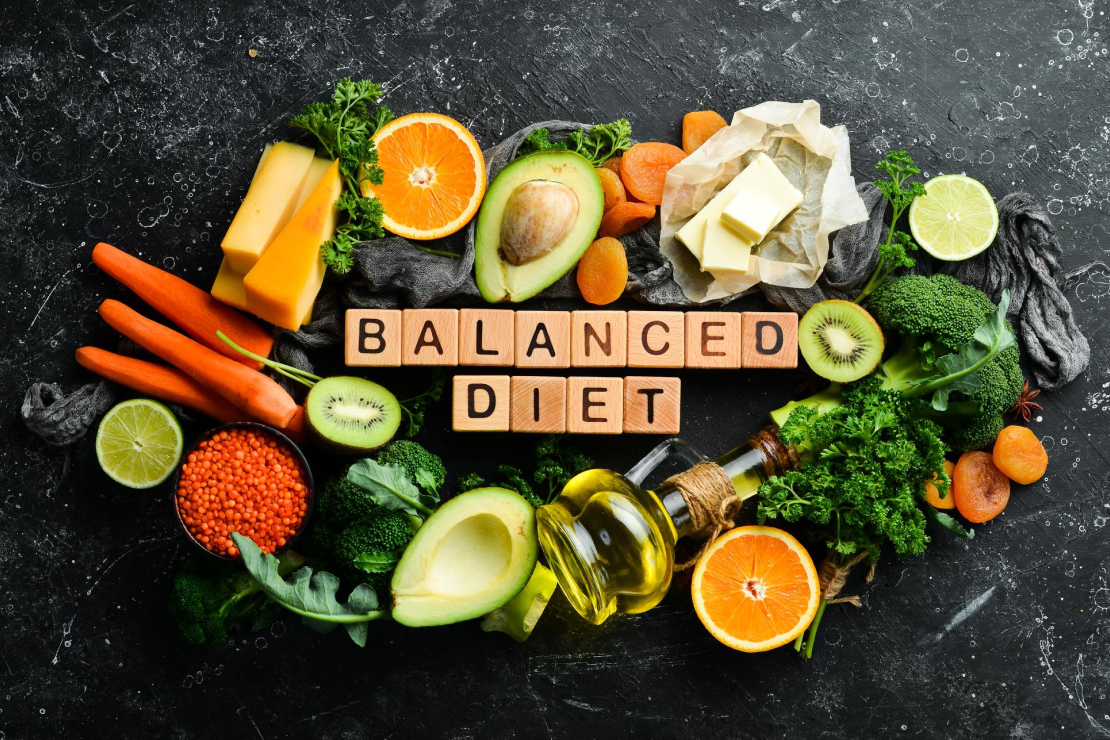Do All Calories Matter Equally? AI Helps You Focus on Nutrient Density
Explore the debate: are all calories truly equal for your health and weight goals? Discover how AI-powered tools can help you shift your focus from mere calorie counting to prioritizing nutrient density for optimal well-being.

Table of Content
The Calorie Conundrum: Beyond Simple Math
For decades, the mantra in nutrition and weight management has been simple: "A calorie is a calorie." This thermodynamic principle suggests that as long as you consume fewer calories than you burn, you will lose weight, regardless of the food source. While this holds true from a purely energetic standpoint, modern nutritional science, amplified by the power of Artificial Intelligence, is revealing a more nuanced truth: not all calories are created equal when it comes to their impact on your health, satiety, hormonal balance, and long-term well-being. The focus is shifting from mere calorie counting to prioritizing nutrient density.
The "A Calorie is a Calorie" Argument: Where It Holds True (and Where It Falls Short)
From a physics perspective, a calorie is indeed a unit of energy. 1,000 calories from a sugary soda technically provide the same amount of energy as 1,000 calories from a lean chicken breast and vegetables. This principle is fundamental for weight loss: to lose weight, you must create a caloric deficit.
Where the Argument Holds True:
- Weight Loss Mechanics: To reduce body fat, you must consume fewer calories than your body expends. This is non-negotiable.
- Energy Balance: The first law of thermodynamics applies to the human body; energy cannot be created or destroyed.
Where It Falls Short: The Biological Reality
The human body is not a simple calorimeter. The source of those calories profoundly impacts:
- Satiety: How full and satisfied you feel.
- Hormonal Response: How your body regulates hunger, fat storage, and metabolism.
- Thermic Effect of Food (TEF): How many calories your body burns digesting the food.
- Nutrient Absorption: The bioavailability of vitamins and minerals.
- Gut Microbiome: The health and diversity of your gut bacteria.
- Long-Term Health: Risk of chronic diseases, energy levels, and overall vitality.
Nutrient Density: The New Metric for Optimal Health
Nutrient density refers to the concentration of micronutrients (vitamins, minerals, antioxidants) and beneficial macronutrients (lean protein, complex carbs, healthy fats) per calorie in a food. Foods high in nutrient density provide a wealth of essential compounds with fewer calories, while nutrient-poor foods (often highly processed) offer many calories with little nutritional value.
Comparing Calorie Sources:
| Food Item (Approx. 200 Calories) | Macronutrient Profile | Micronutrient Profile | Satiety Impact | Health Impact |
|---|---|---|---|---|
| Donut (1 medium) | High sugar, refined carbs, unhealthy fats. | Minimal vitamins/minerals. | Low, quick energy spike followed by crash. | Contributes to blood sugar dysregulation, inflammation, fat gain. |
| Chicken Breast (100g) | High protein, low fat, zero carbs. | Rich in B vitamins, selenium, phosphorus. | Very high, promotes sustained fullness. | Supports muscle growth, metabolism, and satiety. |
| Avocado (1 medium) | High healthy fats, fiber, some carbs. | Rich in potassium, Vitamin K, C, E, B vitamins. | High, due to fiber and healthy fats. | Supports heart health, nutrient absorption, hormonal balance. |
| Broccoli (500g / ~5 cups) | Low carbs, some protein, fiber. | Excellent source of Vitamin C, K, folate, fiber, antioxidants. | Very high, due to volume and fiber. | Supports detoxification, immune health, gut health, cancer prevention. |
How AI Helps You Focus on Nutrient Density
Manually tracking nutrient density is incredibly complex. It requires deep nutritional knowledge, constant research, and meticulous logging. This is where AI-powered nutrition tools shine, transforming the way we approach our diet:
1. Intelligent Food Recognition & Analysis:
- Beyond Macros: AI doesn't just count calories and macros; it analyzes the micronutrient profile of your logged foods.
- Instant Feedback: After logging a meal, AI can provide immediate insights into its nutrient density, highlighting areas where you might be lacking or excelling.
- Smart Substitutions: If you log a nutrient-poor food, AI can suggest nutrient-dense alternatives that fit your calorie and macro goals.
2. Personalized Nutrient Density Goals:
- Tailored Recommendations: Based on your health goals, activity level, and any identified deficiencies, AI can set specific targets for micronutrient intake (e.g., ensuring adequate iron for women, or Vitamin D for bone health).
- Dynamic Adjustments: As your diet evolves, AI continuously monitors your micronutrient intake and provides proactive recommendations to maintain optimal levels.
3. Identifying Hidden Nutritional Gaps:
- Pattern Recognition: AI can identify long-term patterns in your eating habits that might lead to chronic micronutrient deficiencies, even if your calorie and macro targets are met.
- Proactive Alerts: Receive alerts if your intake of critical vitamins or minerals consistently falls below recommended levels, prompting you to adjust your food choices.
4. Recipe Generation & Meal Planning for Density:
- Nutrient-Optimized Meals: AI can generate meal plans and recipes specifically designed to maximize nutrient density within your caloric and macronutrient framework.
- Diverse Food Choices: Encourages a wider variety of whole, unprocessed foods to ensure a broad spectrum of micronutrients.
The Impact of Nutrient Density on Health and Weight Goals
Prioritizing nutrient density has profound effects that go far beyond just the number on the scale:
- Sustainable Weight Loss: Nutrient-dense foods are typically more satiating, helping you feel fuller on fewer calories, naturally leading to a caloric deficit without deprivation.
- Improved Energy Levels: Adequate micronutrients support cellular energy production, reducing fatigue and boosting vitality.
- Enhanced Hormonal Balance: Vitamins and minerals are crucial cofactors for hormone synthesis and regulation, impacting everything from metabolism to mood.
- Reduced Cravings: A body well-nourished with micronutrients is less likely to send out hunger signals driven by nutrient deficiencies.
- Better Gut Health: Nutrient-dense whole foods, especially those rich in fiber, feed beneficial gut bacteria, leading to improved digestion and overall health.
- Disease Prevention: A diet rich in vitamins, minerals, and antioxidants significantly lowers the risk of chronic diseases like heart disease, diabetes, and certain cancers.
Conclusion: Empowering Informed Food Choices with AI
The debate over whether all calories matter equally is settled: from a purely energetic perspective, yes, but from a biological and health perspective, absolutely not. The quality of your calories—their nutrient density—is paramount for optimal health, sustainable weight management, and overall well-being.
AI-powered nutrition tools are revolutionizing our ability to navigate this complexity. By shifting the focus from simple calorie counting to intelligent nutrient density tracking, AI empowers you to make truly informed food choices, build a healthier relationship with food, and unlock your body's full potential. Embrace the future of personalized nutrition and let AI guide you towards a life fueled by quality, not just quantity.
Start Your Health Journey Today
Download Macro Tracking AI and take control of your nutrition with the power of artificial intelligence.
Download on App Store

